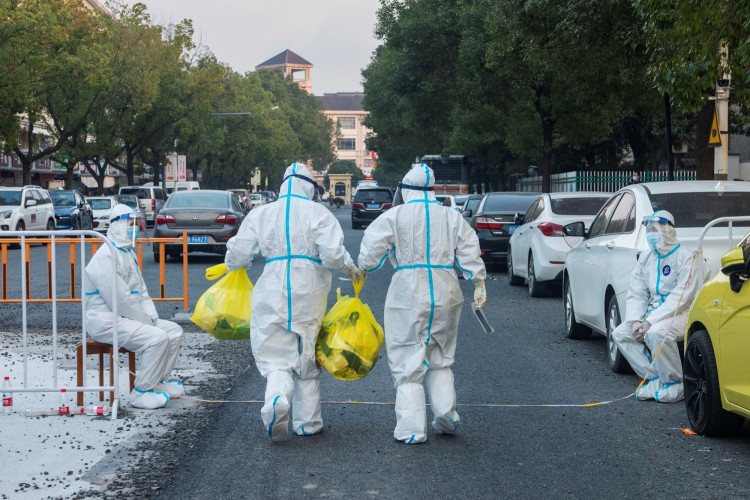This weekend, most inhabitants in Shanghai's economic hub will be subjected to an unexpected round of COVID-19 testing, just 10 days after a city-wide lockdown was lifted, disturbing locals and raising worries about the impact on business.
The lockdown in Shanghai, a major global shipping hub, threatened to exacerbate already-strained international supply chains. However, the city has gradually returned to life in recent days.
Residents have mingled in parks and along the city's historic waterfront to ride the subways and buses as many return to work in their workplaces.
Others, on the other hand, are irritated by the persistent limits, with residents in one compound in the downtown Xuhui neighbourhood protesting the laws this week.
Under China's strict zero-COVID policy, all positive cases are isolated and close contacts are quarantined, often including the entire building or community where they live.
On Thursday, Shanghai confirmed nine new local infections, but none in Minhang.
Later in the day, six more districts announced similar plans. Some districts stated that residents would not be permitted to leave their homes while the testing was being conducted.
The announcements were met with surprise and concern, with some taking to the Weibo-like platform to inquire how the testing would affect weekend plans such as moving house or seeing a doctor. Many people expressed concern that they would be locked down again.
The move adds to the already onerous testing requirements that the city imposed on its 25 million residents after lifting a city-wide lockdown on June 1.
However, the lockdown was never fully raised, with hundreds of thousands of people in China's largest city still confined to their homes and multiple residential compounds subjected to new stay-at-home orders.
Residents must show proof of having taken a COVID-19 test within the last 72 hours to enter areas such as malls and offices, as well as use subways and buses. Many people have become dissatisfied with having to wait in hours-long lines at over 15,000 booths scattered throughout the city to do so.
While China's infection rate has dropped by global standards, President Xi Jinping has doubled down on a zero-COVID policy that officials say is necessary to protect the elderly and the country's medical system, even as other countries attempt to live with the coronavirus.
The two-month lockdown in Shanghai fueled widespread dissatisfaction, anger, and even rare protests among its residents, who were dealing with lost income, loss of freedom, the death of friends and relatives, and even lack of food.





